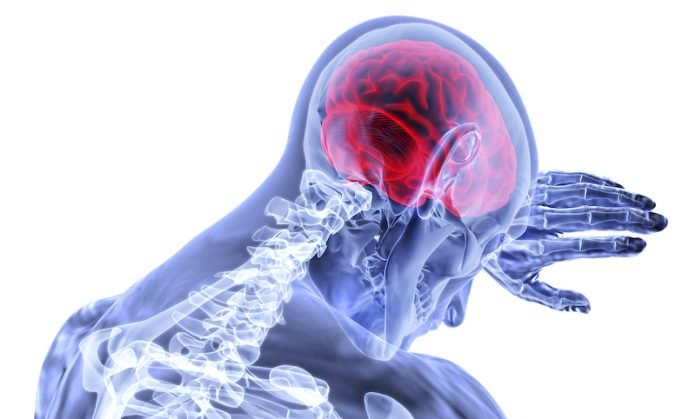
In a new study from the National University of Ireland, researchers found that one in 11 stroke survivors experienced a period of anger or upset in the hour leading up to it. One in 20 patients had engaged in heavy physical exertion.
The suspected triggers have been identified as part of the global INTERSTROKE study—the largest research project of its kind.
Stroke is a leading global cause of death or disability. Each year, approximately 7,500 Irish people have a stroke and around 2,000 of these people die.
An estimated 30,000 people are living in Ireland with disabilities as a result of a stroke.
In the study, the team analyzed 13,462 cases of acute stroke, involving patients with a range of ethnic backgrounds in 32 countries. The average age of patients in the study was 62.
The research analyzed patterns in patients who suffered an ischemic stroke—the most common type of stroke, which occurs when a blood clot blocks or narrows an artery leading to the brain, and also intracerebral hemorrhage—which is less common and involves bleeding within the brain tissue itself.
The team found that anger or emotional upset was linked to an approximately 30% increase in the risk of stroke during one hour after an episode—with a greater increase if the patient did not have a history of depression.
They also found that heavy physical exertion was linked to an approximately 60% increase in risk is of intracerebral hemorrhage during the one hour after the episode of heavy exertion.
There was a greater increase for women and less risk for those with a normal BMI. The study also concluded that there was no increase with exposure to both triggers of anger and heavy physical exertion.
The team says the message is for people to practice mental and physical wellness at all ages.
But it is also important for some people to avoid heavy physical exertion, particularly if they are high-risk of cardiovascular, while also adopting a healthy lifestyle of regular exercise.
If you care about stroke, please read studies about the 3 common prescribed drugs that may increase stroke risk by 60%, and findings of this brain problem that can increase risk of stroke for up to five years.
For more information about cognitive health, please see recent studies about scientists find new way to prevent heart attacks, strokes and results showing that adding these drugs to statins may lower stroke risk.
The study is published in the European Heart Journal. One author of the study is Professor Andrew Smyth.
Copyright © 2021 Knowridge Science Report. All rights reserved.



